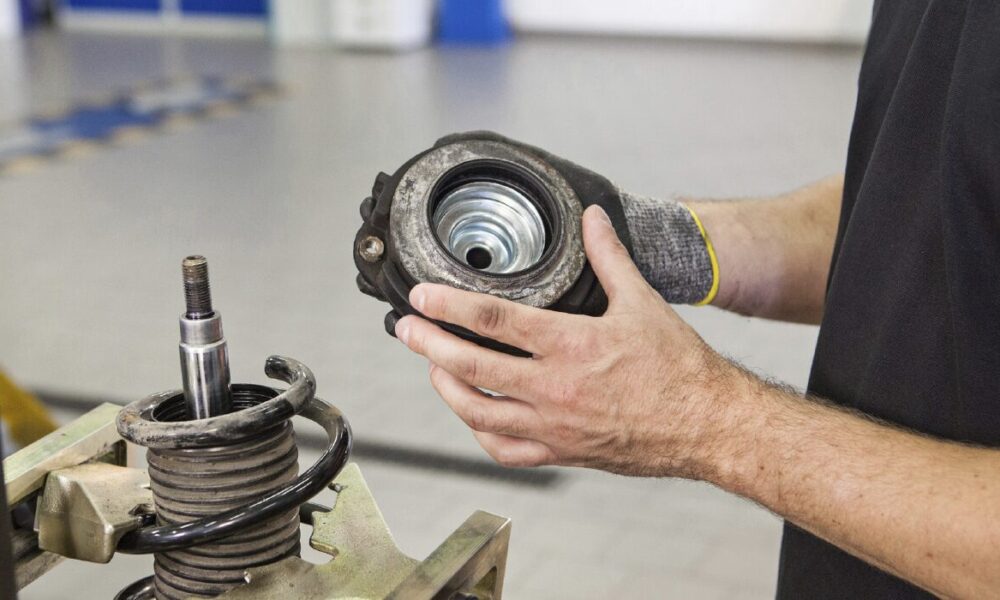Noisy Suspension? Here's What Those Sounds Could Mean

When you’re driving along and notice a clunk, creak, or squeak coming from your vehicle, it might be more than an annoyance—a sign your suspension is calling out for help. In modern day vehicles, particularly those with advanced high-tech suspension systems, these noises are very important warning signals you shouldn’t ignore. Knowing why suspension noises happen and how to repair noisy suspension can prevent you from making expensive repairs down the road. Try HI-TECH suspension systems to filter out the noise!
What Is a Suspension System?
A suspension system of your vehicle is intended to minimize the rolling and bouncing of the vehicle while running over a road surface, ensure stability under steering conditions, and give a comfortable ride. Conventional suspensions employ springs, shock absorbers, and control arms as the major components. Newer vehicles, however, are equipped with sophisticated suspension systems that have electronic sensors, air suspension, and adaptive dampers.
Common Suspension Noises and What They Mean
When your vehicle’s suspension begins making a noise, it’s an indication that something is amiss. This is what some of the most common sounds might mean:
1. Clunking Noise
Clunking on bumps could mean an issue with your ball joints, control arm bushings, or sway bar links. In high tech suspension systems, loose electronic components or sensors are also likely culprits.
2. Creaking or Groaning
Squeaks on turning, particularly when turning or braking, can be caused by dry bushings or worn control arm joints. Even high-tech suspension-equipped vehicles are not spared—electronically controlled struts will also experience mechanical wear in time.
3. Squeaking
A squeaking sound that is repetitive might indicate worn shocks or struts. For those with high-tech suspension, a squeak might indicate an air leak in air suspension components or electronic actuator problems.
4. Knocking or Popping
This usually indicates strut mount problems or damaged coil springs. These problems could also appear in electronically adjustable high-tech suspension systems if sensor or calibration problems are present.
Causes of a Squeaky Suspension
No matter if your vehicle has old-school parts or new high-tech suspension, the following are typical reasons behind the noise:
- Damaged or worn bushings
- Leaks in shocks or struts
- Broken or loose control arms
- Passed its prime suspension parts due to corrosion or drying out
- Electronic failure in adaptive or air suspension systems
Knowing the true cause is half the battle to knowing how to repair noisy suspension issues with success.
How to Repair Noisy Suspension: Step-by-Step Instructions
Fixing a noisy suspension isn’t merely about eliminating the noise—it’s about keeping your car safe and performing optimally. The following are steps on how to repair noisy suspension problems based on the cause.
Step 1: Diagnose the Source
Begin by determining when and where the noise takes place. Is it when you turn the wheel? Travel over bumps? Sudden braking? For high-tech suspension, read error codes for suspension parts using a diagnostic tool.
Step 2: Check Suspension Parts
Check visually the shocks, struts, control arms, and bushings. For high-tech suspension, check the electronic sensors, air lines (in air suspension), and actuator connections.
Step 3: Lubricate Moving Parts
Occasionally, the source of the noise is just plain friction. Greasing bushings and joints will eliminate squeaks and groans. Use care with high-tech suspension systems—only recommended lubricants and techniques should be used.
Step 4: Replace Worn Components
If suspension components such as ball joints, bushings, or struts are damaged, replacement is the only solution. In the case of high-tech suspension, damaged actuators, sensors, or air springs must be replaced with OEM (Original Equipment Manufacturer) components to maintain compatibility.
Step 5: Recalibrate the System
High-tech suspension vehicles can require recalibration following repairs. This guarantees adaptive damping or electronic ride height adjustment function works properly.
Step 6: Seek Professional Help
If you’re not confident in DIY repairs or your vehicle uses a sophisticated, high-tech suspension, visiting for car repair St. Peters is the safest route. They have the tools and knowledge to know exactly how to fix noisy suspension in both conventional and modern systems.
Why High-Tech Suspension Systems Need Special Attention
High-tech suspension systems offer superior handling, comfort, and performance. These systems can include features like:
- Adaptive damping
- Electronically controlled struts
- Air suspension
- Magnetic ride control
These systems do offer better ride quality, yet are more likely to develop problems if maintenance isn’t done correctly. Furthermore, getting problems fixed in high-tech suspension systems is often more difficult due to the specialized equipment and skills needed.
So, learning how to repair noisy suspension in these systems takes more than mechanical aptitude—it may also include electronics and software.
Preventive Maintenance Tips
Want to prevent a clanky suspension in the first place? Here are some tips:
- Inspect suspension parts regularly, particularly if you drive on rough roads frequently.
- Tune in to your vehicle—early noises mean small problems before they develop into big ones.
- Get regular alignment inspections, particularly after running over potholes.
- Flush and replace suspension fluid when your system calls for it.
- For high-tech suspension systems, update software and inspect calibration during routine service.
A noisy suspension is more than just a nuisance—it’s a warning sign that shouldn’t be ignored. Whether your car features a standard suspension setup or a sophisticated high-tech suspension, paying attention to the sounds and symptoms is the key to long-term performance and safety.
How to fix a noisy suspension? Learning to replace a noisy suspension can be as easy as a simple DIY fix or as complicated as a professional job. Either way, however, an early diagnosis and good maintenance will come in handy. Don’t let those squeaks and clunks turn into a headache down the road—your suspension (and your passengers) will appreciate it.

Source: Noisy Suspension? Here's What Those Sounds Could Mean

